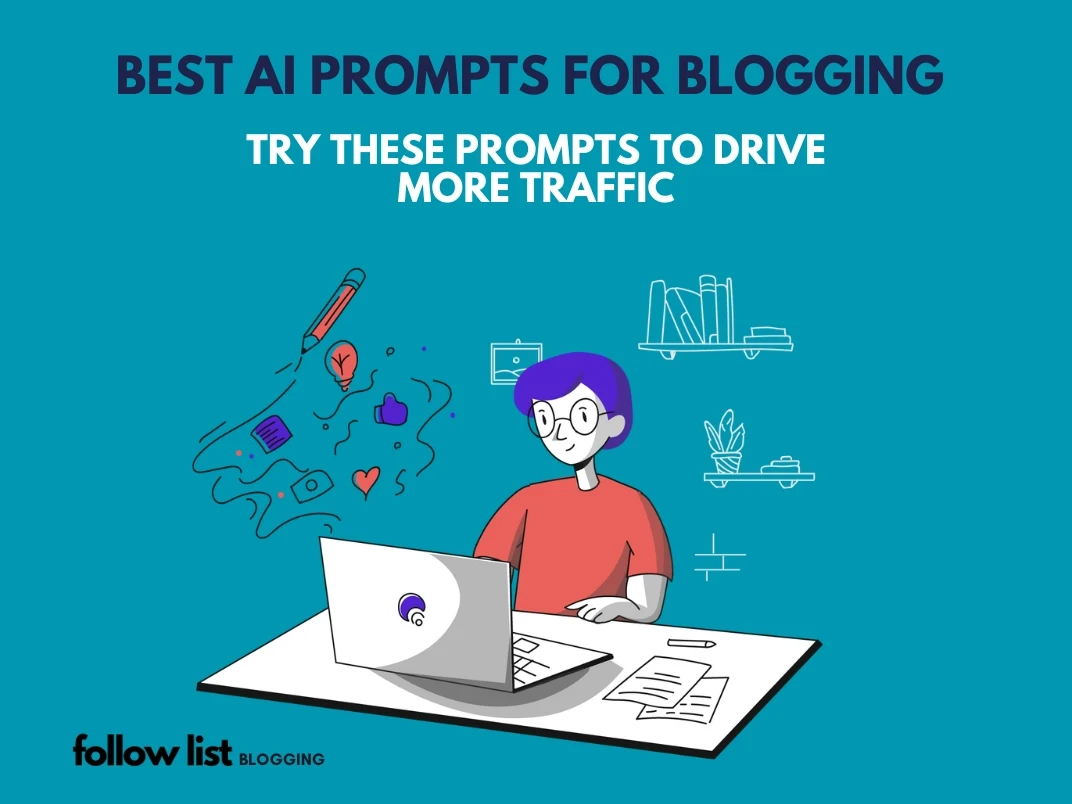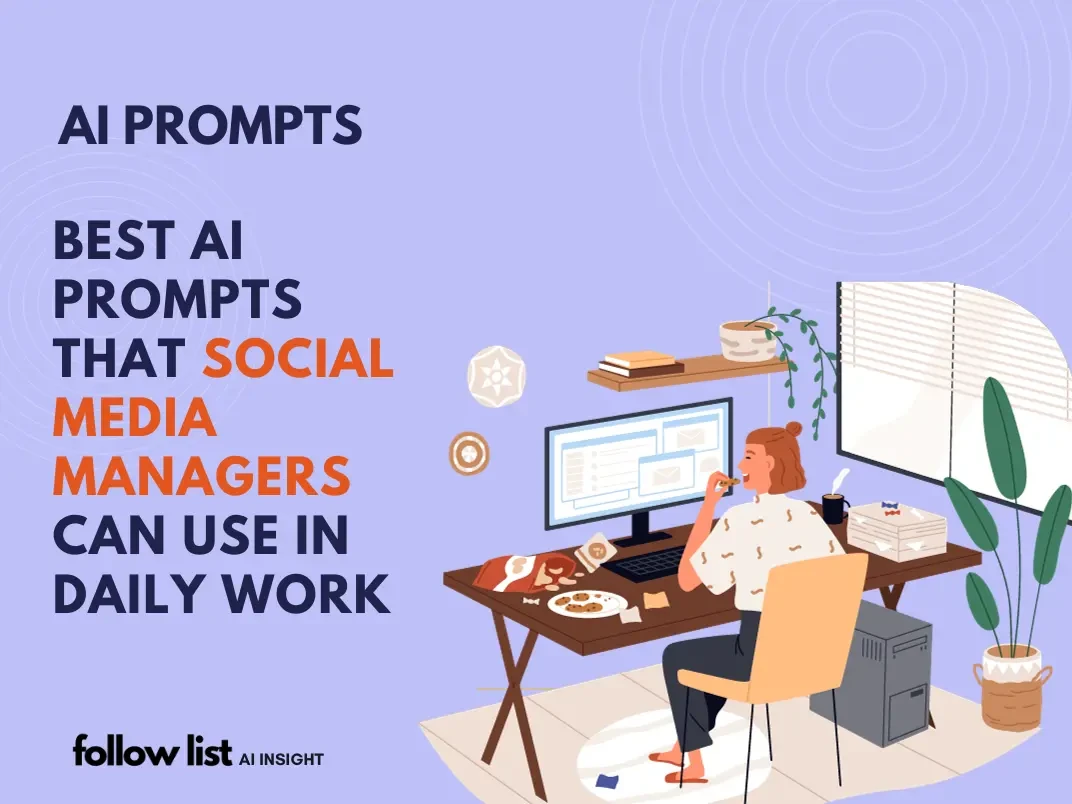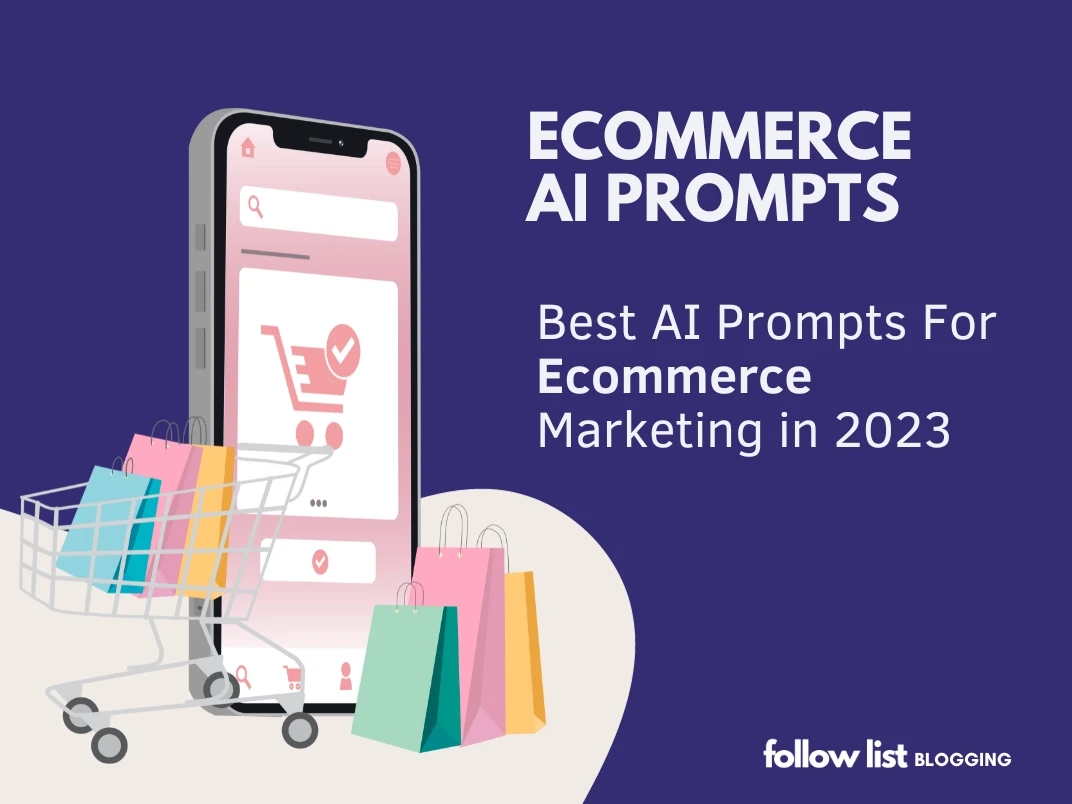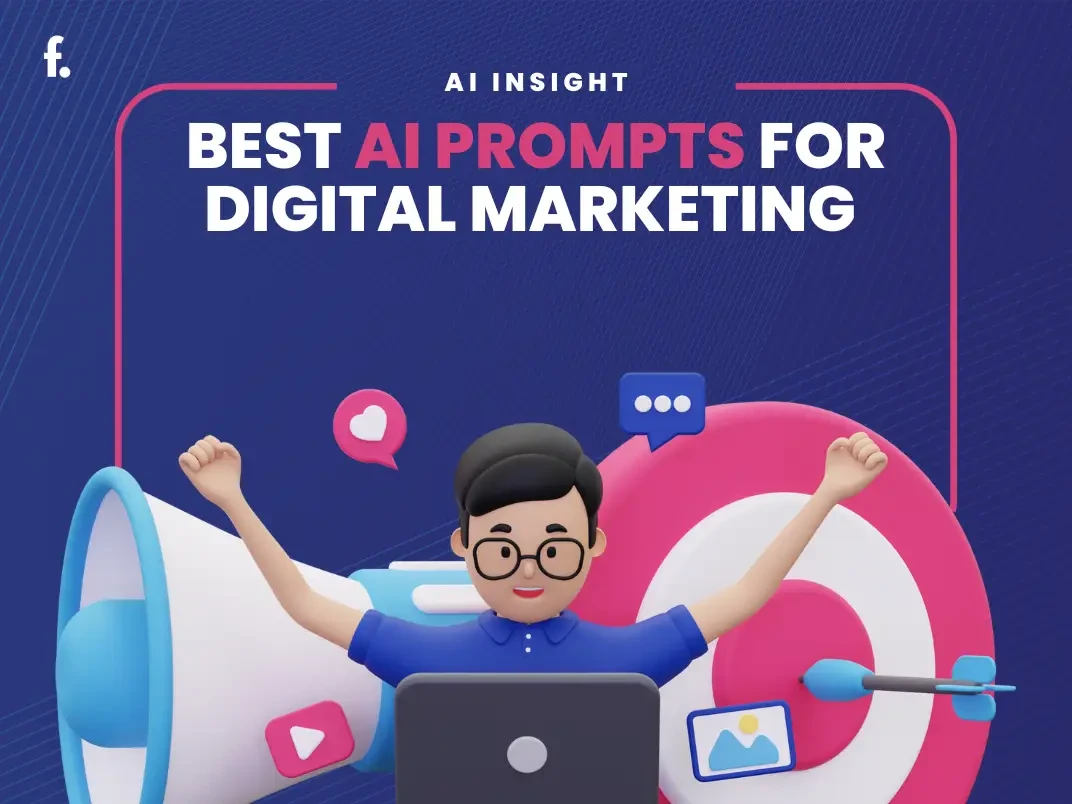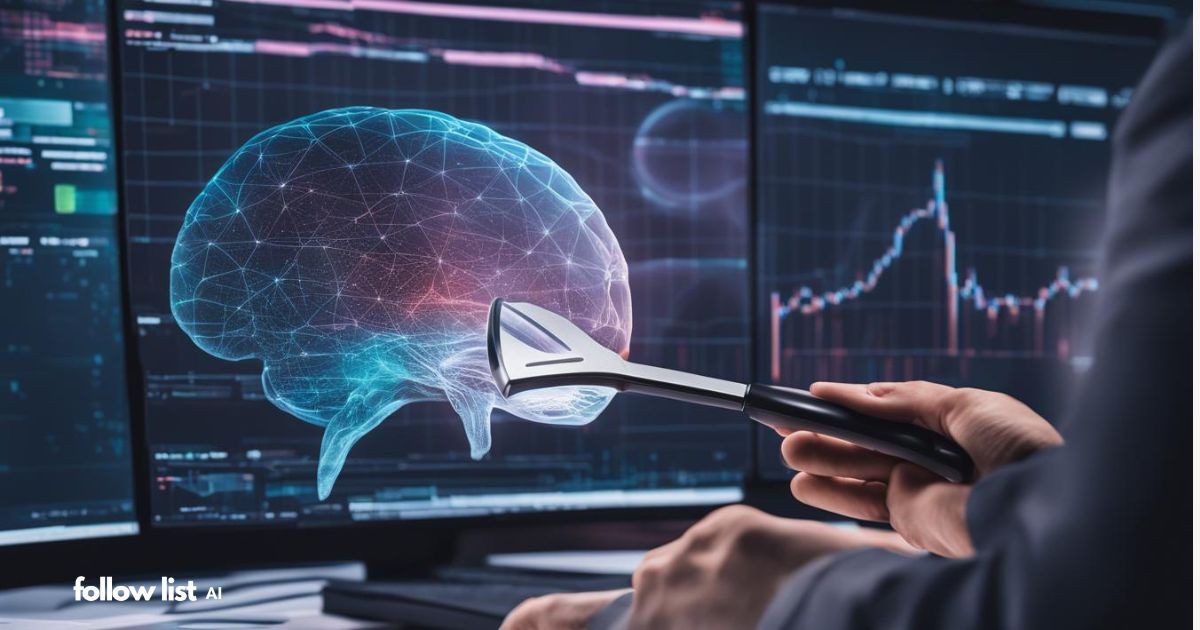
Table of Contents
Listen to this article
AI in Digital Marketing - The Ultimate Guide
In recent years, digital marketing has undergone a significant transformation, thanks to the power of Artificial Intelligence (AI). AI technology is revolutionizing the way marketers approach their campaigns, delivering innovative solutions that provide competitive advantages.
From analyzing customer data to improving targeting and personalization, AI has become an indispensable tool for digital marketing success. As the scope of AI technology continues to expand, marketers must take out maximum of its capabilities to drive growth and stay ahead in the competitive market.
Key Points
- AI technology is transforming digital marketing strategies to deliver innovative solutions.
- Marketers must explore the capabilities of AI to improve targeting and personalization.
- The use of AI-driven automation and data analytics helps marketers to make informed decisions for better results.
- AI offers real-world examples of its potential to drive marketing results, improving customer experiences and targeting.
- Implementing AI in digital campaigns requires careful consideration and best practices for maximum conversion or expected results.
Understanding AI Technology in Digital Marketing
Artificial Intelligence (AI) technology is proving to be a game-changer for digital marketing. It refers to the ability of machines to learn from data inputs, analyze information, and make decisions based on that data.
AI technology can be used in various ways to enhance digital marketing strategies and drive better results. For example, it can analyze customer behavior patterns, personalize content, provide real-time customer support, optimize advertising bidding, and improve overall targeting.
By utilizing AI technology, marketers can gain insights into their target audience's preferences and behaviors, enabling them to create more effective campaigns. Additionally, AI can help automate tasks that were once highly manual, such as email segmentation and ad targeting. This automation can save marketers time and effort, allowing them to focus on more strategic initiatives.
The Benefits of AI Technology in Digital Marketing
Improved targeting: With AI-driven machine learning, digital marketers can analyze customer data to better understand their preferences and behavior. This allows them to create highly-targeted campaigns that are more likely to result in conversions.
Cost Effective: AI is able to work much faster than what humans do manually, this saves employee salary and brings out results much faster leading to cost saving.
AI technology enables businesses to automate many of their marketing tasks, saving them time and resources in the process.
Better Understanding of Customer’s Need: AI can analyze customer behavior and preferences to provide a personalized experience that meets their needs. This, in turn, can lead to higher engagement and more loyal customers.
Real-time insights: AI can analyze vast amounts of data in real-time, allowing marketers to make decisions based on accurate and up-to-date information.
The Role of AI in Digital Marketing Campaigns
Artificial Intelligence (AI) nowadays playing a significant role in optimizing digital marketing campaigns. AI-powered automation and data analytics are helping marketers make informed decisions and drive better results. By using AI technology, marketers can get maximum benefits from customer data to create personalized campaigns that engage the audience more effectively.
AI-driven automation can help marketers save time and resources by automating tedious tasks such as segmentation and lead scoring. This automation also enhances targeting, allowing marketers to identify the most qualified leads and deliver personalized messages to them through various channels.
Data analytics are another critical aspect of AI in digital marketing. By analyzing vast amounts of data, AI can extract insights, classify leads, and predict customer behavior. These insights help marketers make informed and data-driven decisions that drive better campaign results.
Best use of AI Power in Marketing Automation
Artificial Intelligence (AI) has brought about significant advancements in marketing automation. AI-powered marketing automation tools can handle routine tasks, making processes faster, smoother, and more efficient. These tools incorporate algorithms that analyze data and provide insights that enable marketers to make informed decisions, creating value for both the business and the customers.
Implementing AI-powered marketing automation tools streamlines processes and enhances targeting, resulting in customer engagement and brand loyalty. The targeted approach minimizes information overload and promotes higher conversion rates and increased sales. With the automation of repetitive tasks, the marketing team can focus on customer satisfaction, brand development, and strategy development.
One of the notable benefits of AI-powered marketing automation is personalized content. AI enables the creation of individualized promotions, advertisements, and recommendations, resulting in improved customer experiences. Personalized content is replacing the one-size-fits-all approach and creating substantial business value. Research shows that 80% of surveyed customers are more likely to do business with a company that offers personalized experiences.
In conclusion, AI-powered marketing automation streamlines marketing processes, enhances targeting, and improves customer engagement. The incorporation of AI algorithms provides insights and analytics, enabling marketers to make informed decisions and create personalized content.
Now get higher conversion rates, increased sales, and strong customer engagement and loyalty with AI powered marketing automation.
AI-Driven Strategies for Digital Marketing Success
Artificial intelligence has revolutionized the way that marketers approach digital marketing. With the help of AI-driven digital marketing strategies, businesses can enhance their content creation, personalization, and customer segmentation, resulting in better engagement and conversion rates.
Here are some proven strategies:
Optimizing Content Creation
One of the most significant benefits of AI technology is that it can assist with content creation. AI tools can analyze large amount of data, extracting key insights about customer preferences and behavior. This information can then be used to create highly personalized and relevant content, helping businesses to stand out in a crowded marketplace.
Personalization and Customer Segmentation
AI technology can also help businesses personalize their approach to customer segmentation. By analyzing customer data and behavior, businesses can group customers by shared characteristics or behaviors. With this information, marketers can create targeted campaigns that resonate with these specific groups, resulting in higher engagement rates and more conversions.
Utilizing Machine Learning Algorithms
Machine learning algorithms are a crucial component of AI-driven digital marketing strategies. These algorithms enable machines to learn from data, improving their ability to predict customer behavior and preferences. By utilizing these algorithms, businesses can optimize their ad targeting and automate various marketing processes, resulting in better outcomes.
The Future of AI-Driven Digital Marketing Strategies
The future of AI is surely very surprising and exciting at the same time as by incorporating AI-driven digital marketing strategies into their approach, businesses will be able to optimize their marketing efforts and achieve greater success in the digital world.
So, the future of AI is highly advanced. Most of the tasks or analyses that were known to be done only by human minds like making digital marketing strategies fully personalized, can now be done effectively with AI.
Unlocking Insights with AI and Data Analytics
When it comes to digital marketing, data is everything. With AI and data analytics in digital marketing, marketers can access powerful insights that enable them to optimize campaigns and drive better results. By utilizing AI, marketing professionals can analyze vast amounts of data in seconds and uncover patterns that traditional analytics tools could miss.
For eg, AI-powered data analytics tools can provide real-time insights into customer behavior, preferences, and purchasing patterns. Marketers can use this information to create personalized campaigns that are more likely to resonate with their audience. Additionally, AI-driven analytics can help marketers to identify the most effective channels and messaging for their campaigns.
Future Trends and Challenges of AI in Digital Marketing
The future of AI in digital marketing is exciting, with emerging technologies driving innovation and transforming the industry. Marketers must keep up with the latest trends and challenges to stay ahead of the graph.
Emerging Technologies:
AI is evolving rapidly, and marketers must be ready to adapt new technologies to stay on top in competitive market. Voice search, chatbots, and virtual assistants are just a few examples of emerging technologies that are already transforming the way customers interact with brands.
The Need for Human Element:
While AI-driven automation and analytics offer efficiency and accuracy, the role of human creativity and intuition cannot be overlooked. Marketers must strike a balance between AI and the human touch to create engaging and personalized customer experiences.
Data Privacy and Security:
As AI relies on extensive data collection, marketers must prioritize data privacy and security to build trust with customers. With emerging regulations such as GDPR, marketers must implement ethical and responsible data practices.
The Challenge of Implementation:
Implementing AI in digital marketing campaigns can be complex, requiring specialized skills and resources. Marketers must be strategic in selecting the right technologies, partnerships, and training to ensure successful implementation and optimization.
AI Applications in Marketing Campaigns
Artificial intelligence (AI) has revolutionized the way marketers approach digital campaigns. With the effective use of the AI, companies can analyze data, personalize marketing efforts, and optimize campaigns in real-time, resulting in increased revenue and customer satisfaction.
In this section, we will explore some real-world examples of AI applications in marketing campaigns that have driven remarkable results.
Personalization
Personalization is a critical aspect of effective marketing campaigns, and AI has made it possible to deliver hyper-personalized content that resonates with consumers. Netflix is a prime example of this, using AI algorithms to deliver personalized recommendations to millions of viewers globally. By analyzing data on each viewer's watching habits, Netflix can suggest shows and movies that are likely to keep them engaged, resulting in longer watch times and increased customer retention.
Targeting
AI technology has also made it possible to target the right audiences with personalized content. Adobe's AI-driven capabilities, for instance, allow marketers to identify the most promising leads across multiple channels. By analyzing the behavior of visitors on a website, Adobe's AI algorithms can predict the likelihood of a visitor converting into a paying customer, enabling marketers to create custom content that speaks to their needs and interests.
Content Creation
AI applications in content creation have also emerged as a popular trend in digital marketing. For instance, the Associated Press has utilized AI to create newsworthy articles at breakneck speeds. By using AI algorithms to interpret raw data and generate narrative reports, AP has been able to publish news stories faster than traditional journalists, resulting in significant cost savings.
Conversational Marketing
Conversational marketing is another area where AI is transforming marketing campaigns. By using chatbots that can simulate human-like conversations, marketers can create personalized experiences for customers at scale.
For example, H&M has been using AI-powered chatbots to converse with customers on Facebook Messenger, answering queries, providing styling advice, and even helping them complete purchases, resulting in higher customer satisfaction and increased revenue.
The Impact of AI in Digital Marketing
The impact of AI on digital marketing cannot be over-emphasized. AI has transformed customer experiences and made them more personalized, leading to increased customer loyalty and satisfaction. Through advanced targeting techniques, AI has made it possible for marketers to reach their intended audience with ease, improving the success rate of marketing campaigns.
Moreover, AI-powered digital advertising has revolutionized the industry by making it easier for marketers to optimize their ad creatives, target the right audience, and track performance metrics in real-time. This has led to enhanced ROI and improved campaign performance.
The impact of AI in digital marketing is enormous, and companies that have implemented AI-powered strategies are already reaping the benefits. As the technology continues to evolve and become more sophisticated, we can expect to see more innovative uses of AI in digital marketing campaigns in the future.
Implementing AI in Digital Campaigns - Best Practices
AI technology has the potential to revolutionize digital marketing campaigns and drive better results. However, implementing AI in digital campaigns may seem difficult for many marketers.
To help you get started, we've compiled some best practices, tips, and considerations for implementing AI in digital campaigns successfully.
1. Define Your Goals
Before implementing AI in your digital campaigns, it's essential to define your goals and objectives. What do you want to achieve with AI? Are you looking to improve targeting, increase conversion rates, or optimize ad spend?
Having clear goals in mind will help you choose the right AI tools and technologies that align with your objectives.
2. Get Data-Ready
AI is only as good as the data it analyzes. To implement successful AI-powered digital campaigns, you need high-quality data that is clean, accurate, and relevant.Invest in data management tools and processes to collect, store, and analyze your data effectively. Use AI-powered analytics tools to uncover insights from your data and leverage those insights to improve your campaigns.
3. Experiment and Test
Implementing AI in your digital campaigns is not a one-time task but an ongoing process. Continuously experiment and test different AI technologies and strategies to understand what works best for your business and target audience.Monitor and measure the performance of your AI-powered campaigns regularly, and make adjustments as needed to optimize your results.
4. Focus on Customer Experience
AI-powered digital campaigns can improve customer experiences by delivering personalized and relevant content to your target audience. However, it's crucial to balance automation and personalization to avoid coming off as spammy or invasive.
Make sure to prioritize the customer experience throughout your campaigns and leverage AI technologies to enhance, not commoditize, those experiences.
Implementing AI in digital campaigns can seem uneasy, but by defining your goals, getting data-ready, experimenting and testing, and focusing on customer experience, you can improve your digital marketing campaigns.
Conclusion
In conclusion, AI technology has undoubtedly transformed the digital marketing industry. The integration of AI in digital marketing campaigns has enabled marketers to make informed decisions, streamline processes, and generate better results. Artificial intelligence in marketing has significantly impacted customer experiences, improving targeting and revolutionizing advertising.
As the marketing landscape continues to evolve, it is essential for marketers to adopt AI-driven strategies to stay competitive. AI in digital marketing is the future, and it will continue to shape the marketing industry in the years to come.


